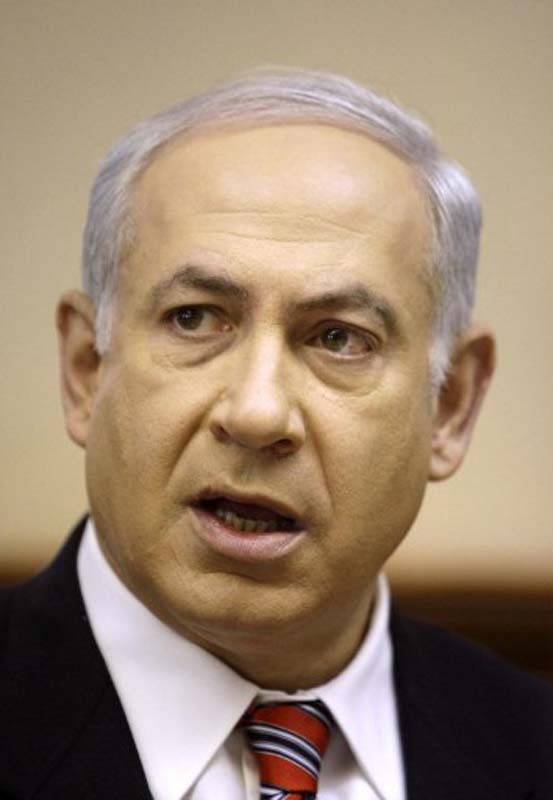
403
Sorry!!
Error! We're sorry, but the page you were looking for doesn't exist.
Israeli Prime Minister Benjamin Netanyahu announces ceasefire in Lebanon
(MENAFN) Israeli Prime Minister Benjamin Netanyahu recently announced a ceasefire in Lebanon, stating its duration would depend on the situation there. French researcher David Khalfa, co-director of the Observatory of North Africa and the Middle East, analyzed the military and diplomatic motivations behind Israel's decision to agree to the ceasefire. According to Khalfa, there are four main reasons for this:
1.Weakening Hezbollah's Military Capability: Israel sought to reduce Hezbollah's military strength, particularly its efforts to link the northern and southern fronts. Hezbollah had initially planned to create a unified front, forcing Israel to deploy more forces. However, Hezbollah's military weakness, following intense engagements over the last two months, led to abandoning this strategy, allowing Israel to keep the two fronts separate.
2.Fatigue Among Israeli Troops: Israeli soldiers stationed on the northern front were exhausted, particularly since many had also fought in the southern front. With around a thousand soldiers lost in the past year, the military was under significant strain, making a break from intense conflict necessary for troop rest.
3.Modest Military Goals in the North: The objectives in the north were more limited compared to the goals in Gaza. While the focus in Gaza was to collapse Hamas, the northern campaign's primary aim was to neutralize Hezbollah’s threat by dismantling its infrastructure, such as tunnels and weapon depots. This mission was largely achieved, reducing the necessity for further military action in the region.
4.Political Considerations Tied to U.S. Elections: Israel's government was also concerned about potential diplomatic actions from the U.S. under President Joe Biden's administration, similar to those seen during the Obama era, particularly regarding Resolution 2334, which condemned Israeli settlements. Israel feared that continuing hostilities could provoke a similar response over Lebanon and Gaza. Therefore, agreeing to the ceasefire was seen as a strategic move to avoid a diplomatic defeat in the U.S. Security Council and preempt any negative resolutions.
Additionally, Khalfa speculates that the ceasefire might be a gesture aimed at the incoming U.S. administration under Donald Trump, with Israel hoping Trump would neutralize potential diplomatic challenges, such as arrest warrants for Netanyahu and former Defense Minister Yoav Gallant.
1.Weakening Hezbollah's Military Capability: Israel sought to reduce Hezbollah's military strength, particularly its efforts to link the northern and southern fronts. Hezbollah had initially planned to create a unified front, forcing Israel to deploy more forces. However, Hezbollah's military weakness, following intense engagements over the last two months, led to abandoning this strategy, allowing Israel to keep the two fronts separate.
2.Fatigue Among Israeli Troops: Israeli soldiers stationed on the northern front were exhausted, particularly since many had also fought in the southern front. With around a thousand soldiers lost in the past year, the military was under significant strain, making a break from intense conflict necessary for troop rest.
3.Modest Military Goals in the North: The objectives in the north were more limited compared to the goals in Gaza. While the focus in Gaza was to collapse Hamas, the northern campaign's primary aim was to neutralize Hezbollah’s threat by dismantling its infrastructure, such as tunnels and weapon depots. This mission was largely achieved, reducing the necessity for further military action in the region.
4.Political Considerations Tied to U.S. Elections: Israel's government was also concerned about potential diplomatic actions from the U.S. under President Joe Biden's administration, similar to those seen during the Obama era, particularly regarding Resolution 2334, which condemned Israeli settlements. Israel feared that continuing hostilities could provoke a similar response over Lebanon and Gaza. Therefore, agreeing to the ceasefire was seen as a strategic move to avoid a diplomatic defeat in the U.S. Security Council and preempt any negative resolutions.
Additionally, Khalfa speculates that the ceasefire might be a gesture aimed at the incoming U.S. administration under Donald Trump, with Israel hoping Trump would neutralize potential diplomatic challenges, such as arrest warrants for Netanyahu and former Defense Minister Yoav Gallant.

Legal Disclaimer:
MENAFN provides the
information “as is” without warranty of any kind. We do not accept
any responsibility or liability for the accuracy, content, images,
videos, licenses, completeness, legality, or reliability of the information
contained in this article. If you have any complaints or copyright
issues related to this article, kindly contact the provider above.


















Comments
No comment